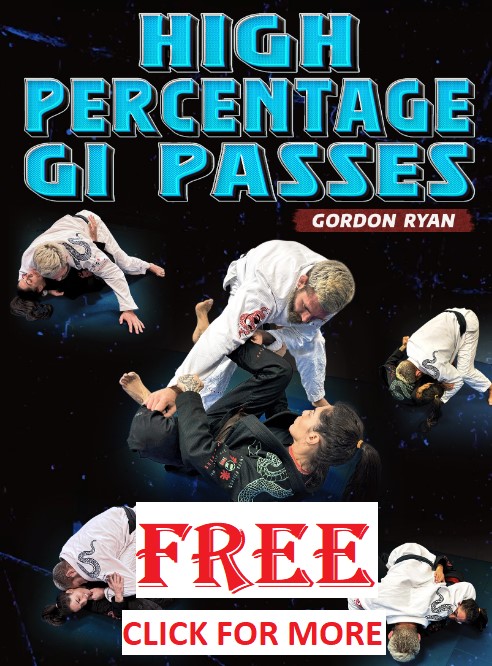
BJJ training is fun but it is not cheap. As a sport, Brazilian Jiu-Jitsu is not something that’s only affordable to a small portion of the population. However, it is on the expensive side of affordable martial arts. Especially when you train with the Gi. Of course, BJJ academies need to survive in order to provide yours with a place to train at. This means that there’s simply no way around membership fees. However, add to that the cost of Gis, rashguards, grappling accessories, competitions, and the BJJ lifestyle and you’ve got quite a budget you need to have at your disposal. The good news is that there are ways to trim your Jiu-Jitsu expenses and make your budget more than enough to support your BJJ training.
If there’s one thing that can skyrocket your BJJ training expenses it is competing. If training is fun, then competition is just about the best thing you can do. However, it involves a lot of variables, each with a cost of its own. You need to travel, find accommodation, pay a participation fee etc. Add to that a nutrition plan to help you cut weight, plus the expenses of being abroad and it already mounts up to a significant sum. And this is all before factoring in the membership and/or gear fees for the month.
BJJ training requires money. However, the cost is easily manageable with some common sense and a few rules to go by. today, we provide both the rules and categorization of the most usual expenses you’ll encounter as a grappler.
Costs Of BJJ Training
When it was created, Brazilian Jiu-Jitsu certainly wasn’t intended to be an expensive sport that people train and compete in worldwide. It was an efficient system to beat any opponent under any circumstances. As the art turned into a sport, so did the BJJ training environment. Today training grappling requires you to take both monthly and yearly costs into account.
For starters, there are gym memberships. It is normal to pay for learning Jiu-Jitsu, as academies can’t stay open without members. PLsu, take into account that Jiu-Jitsu requires both space and mats to train on, which is not easy to pull off. Especially if the academy is lending instead of winning the space where it’s located. Across the USA, people pay between $100 and $200 depending on Academy.
On top of a monthly (or yearly) membership, you’ll need gear to train at. And, as you’ll definitely be training more than once per week, just one set of gear won’t cut it. If it’s Gi training, you need at least two Gi’s if you’re training two-four times a week. Even if you’re only doing Gi BJJ training, you’ll still need rashguards to wear under the Gi. Throw in some spats too, to keep you warm in winters and you’ve got quite the expense. Training No-Gi is slightly cheaper, but you still need rashguards, spats and shorts, a set of which can easily reach up to $100.
Mouth guards, shinpads, athletic tape, post workout shakes, commuting, tournaments, seminars…. spending money on BJJ is so easy that you might find your whole monthly budget disappeared on the mats.
Balancing Your Finances
Just like with anything else you do in life, you’ll need to balance the financial aspect of your BJJ training. The alternative is going to leave you without money, and without a place to train at. Not a good outcome.
Luckily, there are great ways to introduce some order into your BJJ lifestyle. At least from a financial standpoint. And no, you won’t need to hire an accountant to do it for you. A few simple guidelines and a couple more tricks will help you train BJJ on a budget and thrive. Be warned, however, that it is going to require you modify some other aspects fo your lifestyle as well.
Have A Plan
The first thing to do is have a plan. However, when you plan finances, it is best if you have a long-term plan that includes unexpected expenses. For that try to allocate a certain percentage of your monthly income for BJJ. For example, 10 % is a great amount to dedicate to BJJ. It’ll probably cover more than your membership fee, meaning you can put it away and have ready to use when you need a new Gi, or a tournament comes up.

Also, make sure you keep your shopping sprees down to a minimum. This doesn’t mean stashing away all cahs for new Gis, but do be sensible about going shopping. After all, it is all about balance, remember?
A very important BJJ training-specific thing is to make sure you’re actually getting what you’re paying for. If you’re asked to pay about everything and anything, you might be in a McDojo, so a good financial move is to find another academy.
Extra Activities
If you need to really cut back on BJJ training expenses, then you can always look to offer some help around the academy. Regardless of belt level, you could ask to do some chores around and get a certain discount as a result.
If you’re a higher level student, like a purple belt or above, ask if you could help out with classes. Kids classes usually need all the adults they can get, so you might find a discount there. or try and help out in fundamental classes. If you’re a proven competitor and a higher level belt, you could also offer privates. This will bring some income for both you and the academy, plus, you get to train and learn more, even when you’re teaching.
And, if it is possible for you, perhaps try your hand at professional BJJ tournaments. They tend to offer cash prizes which may help you if you’re in a financial tight spot.
Gear
As far as gear goes, it is as straightforward as possible – stick to the cheap stuff. This doesn’t mean that they’ll be a worse quality than the latest model you see pop up on your Facebook timeline. The latest Scramble Gi might really be an awesome one, but also has the price of one. Stick to cheaper models and brands that’ll provide you with good quality gear for BJJ training and even competition. And, if you’re really a stickler, try to focus on sales and clearances., you might need to wait a while for the latest rashguard kit, but you’ll still get it without having to sacrifice a month of training.
Also, make sure you provide your gear with the utmost possible care. the better you take care of all your training apparel and accessories the longer they’ll last. Plus, keeping them in pristine condition has its benefits. For example, if you’re looking to sell your old Gi in order to fund buying a new one, a well-kept one is going to be worth much more than a ragged one.
Tournaments
Tournaments are also an area which can help you balance your budget. Namely, there’s little you can do about the registration fee unless you find a sponsor. But you can influence almost all other aspects of it. For one, you can make sure you plan your travel early and get cheap tickets. Try buying through services that offer the cheapest prices on tickets.
Also, try and book hotels instead of luxury hotels. All you need to do is have a good comfortable bed to sleep in any way. Factor in all the expense you might have on the day of and after the tournament as well. It’s okay to treat yourself to a good meal afterward but you do not need to pig out 5 times between the tournament and coming back home. remember, every meal you eat out is more expensive than something you prepare. Which, interestingly, you can do in a hostel.
Jiu-Jitsu LIfestyle

You also do not need a strength and conditioning coach to yell at you during training sessions outside the academy. Instead, go out and do some exercise on the monkey bars. Or, even better, pick up a kettlebell or two and you’ll get in amazing shape at home.
Finally, look to shorten your commuting expenses. Either carpool with someone to training, or try to go wit ha bicycle or other cheap transportation means.


![Darce Choke Encyclopedia – Origins, Mechanics and Variations [2024] BJJ, choke, Brabo, BJJ Darce Choke, D'arce Choke, Darce BJJ Choke](https://bjj-world.com/wp-content/uploads/2017/11/JungPoirierLeeYahoo-218x150.jpg)











![Upper Body Chain Attacks Janine Mocaiber DVD Review [2025] Upper Body Chain Attacks Janine Mocaiber DVD Review](https://bjj-world.com/wp-content/uploads/2025/03/upper-body-chain-attacks-janine-mocaiber-dvd-review-218x150.png)
![The Empty Half Guard Michael Currier DVD Review [2025] The Empty Half Guard Michael Currier DVD Review](https://bjj-world.com/wp-content/uploads/2025/03/empty-half-guard-michael-currier-dvd-review-218x150.png)

![Lockdown Quickstart Guide Cameron Mellott DVD Review [2025] Lockdown Quickstart Guide Cameron Mellott DVD Review](https://bjj-world.com/wp-content/uploads/2025/03/lockdown-quickstart-guide-cameron-mellott-dvd-review-218x150.png)
![Crossing and Spinning Steps To Attack Israel Hernandez DVD Review [2024] Crossing and Spinning Steps To Attack Israel Hernandez DVD Review](https://bjj-world.com/wp-content/uploads/2024/09/spinning-steps-to-attack-israel-hernandez-dvd-review-324x235.png)
![Weight Training For Grappling Michael Israetel DVD Review [2025] Weight Training For Grappling Michael Israetel DVD Review](https://bjj-world.com/wp-content/uploads/2025/01/weight-training-for-grappling-michael-israetel-dvd-review-100x70.png)







![Reverse Arm Bar System Andrew Kerfoot DVD Review [2024] Reverse Arm Bar System Andrew Kerfoot DVD Review](https://bjj-world.com/wp-content/uploads/2024/10/reverse-arm-bar-system-andrew-kerfoot-dvd-review-100x70.png)
![Compass Kneebar System Charles Harriott DVD Review [2024] Compass Kneebar System Charles Harriott DVD Review](https://bjj-world.com/wp-content/uploads/2024/11/compass-kneebar-system-charles-harriott-dvd-review-100x70.png)

![Neil Melanson DVD Bundle Review: Filthy Brutal No Good Attacks [2024] Neil Melanson DVD Bundle Review: Filthy Brutal No Good Attacks](https://bjj-world.com/wp-content/uploads/2024/10/neil-melanson-dvd-bundle-review-filthy-attacks-100x70.png)
![Full Guard Formula James Booth DVD Review [2025] Full Guard Formula James Booth DVD Review](https://bjj-world.com/wp-content/uploads/2025/02/full-guard-formula-james-booth-dvd-review-100x70.png)

![Foot Sweep the World Dainis Nguyen-Huu DVD Review [2024] Foot Sweep the World Dainis Nguyen-Huu DVD Review](https://bjj-world.com/wp-content/uploads/2024/11/foot-sweep-the-world-dainis-nguyen-huu-dvd-review-100x70.png)

![Eoghan O’Flanagan Bundle Down Right Sloppy Jiu-Jitsu Review [2024] Eoghan O'Flanagan Bundle Down Right Sloppy Jiu-Jitsu Review 2024](https://bjj-world.com/wp-content/uploads/2024/09/down-right-sloppy-jiu-jitsu-eoghan-oflanagan-bundle-100x70.png)

![Gracie Secrets Closed Guard Kyra Gracie DVD Review [2024] Gracie Secrets Closed Guard Kyra Gracie DVD Review](https://bjj-world.com/wp-content/uploads/2024/12/closed-guard-kyra-gracie-dvd-review-100x70.png)


![Don’t Stand Up Chris Wojcik DVD Review [2024] Don't Stand Up Chris Wojcik DVD Review](https://bjj-world.com/wp-content/uploads/2024/11/dont-stand-up-chris-wojcik-dvd-review-100x70.png)


![Dima Murovanni Kill The Collar Tie BJJ Trendsetters DVD Review [2024] Dima Murovanni Kill The Collar Tie BJJ Trendsetters DVD Review](https://bjj-world.com/wp-content/uploads/2024/09/dima-murovanni-kill-the-collar-tie-dvd-review-100x70.png)



![Front Headlock and Turtle Escapes Brian Glick DVD Review [2024] Front Headlock and Turtle Escapes Brian Glick DVD Review](https://bjj-world.com/wp-content/uploads/2024/11/headlock-and-turtle-escapes-brian-glick-dvd-review-100x70.png)